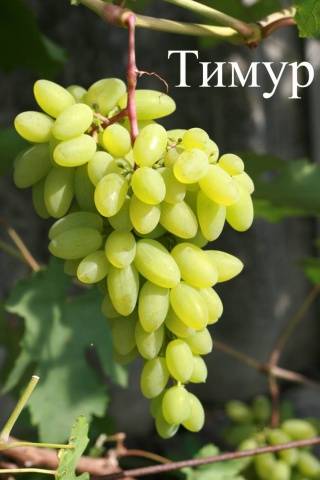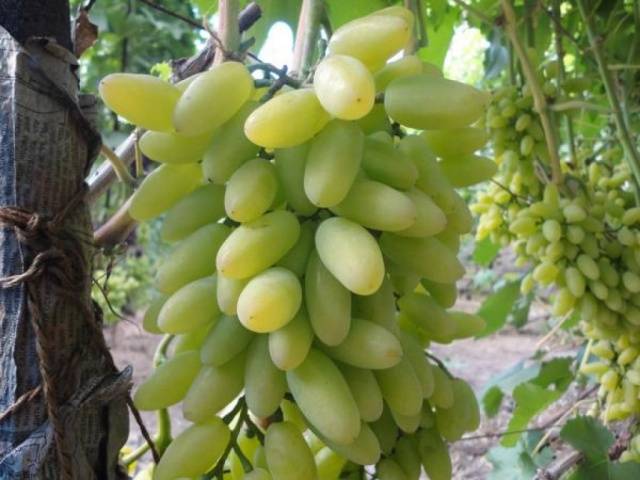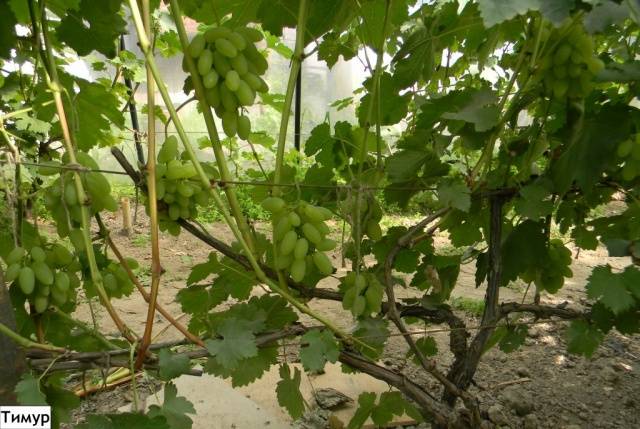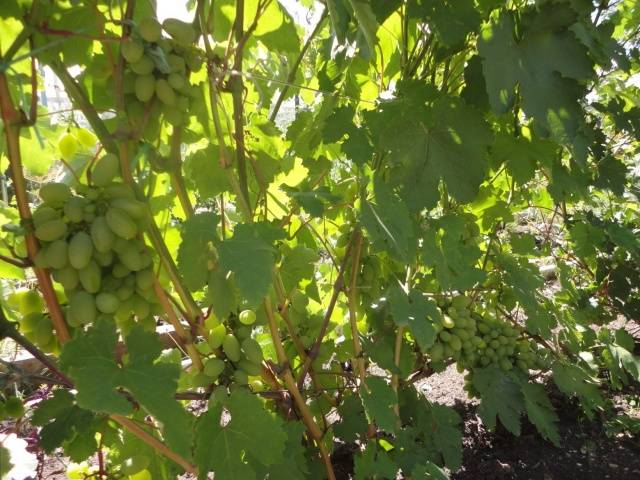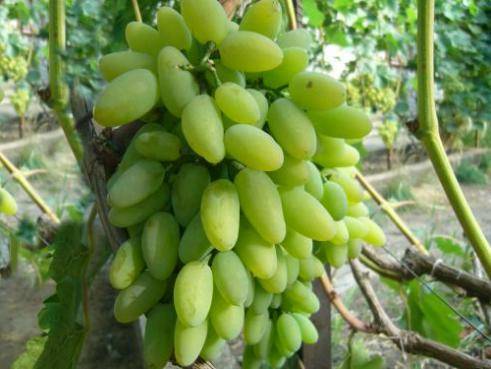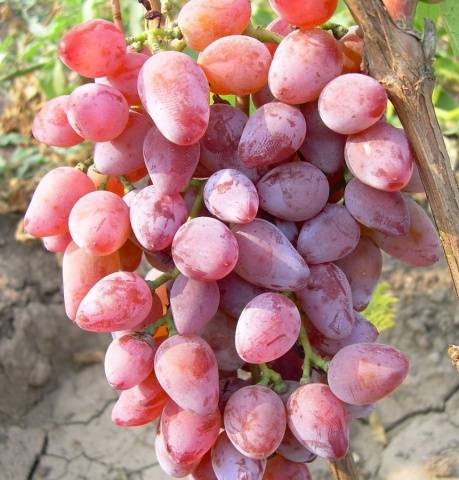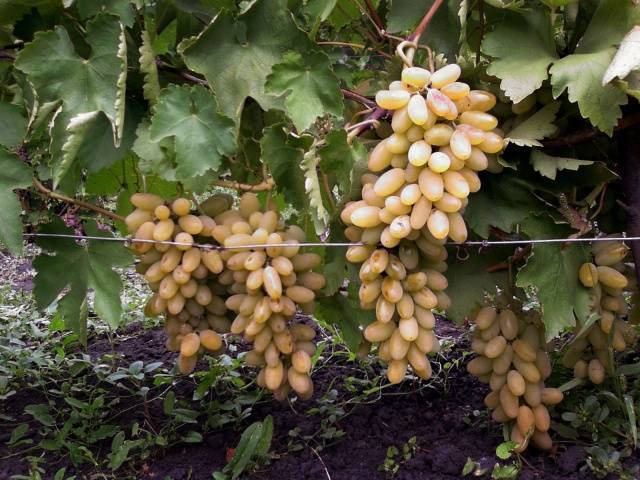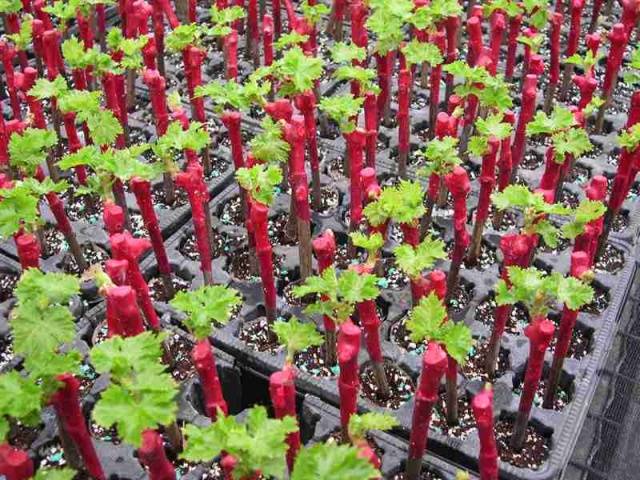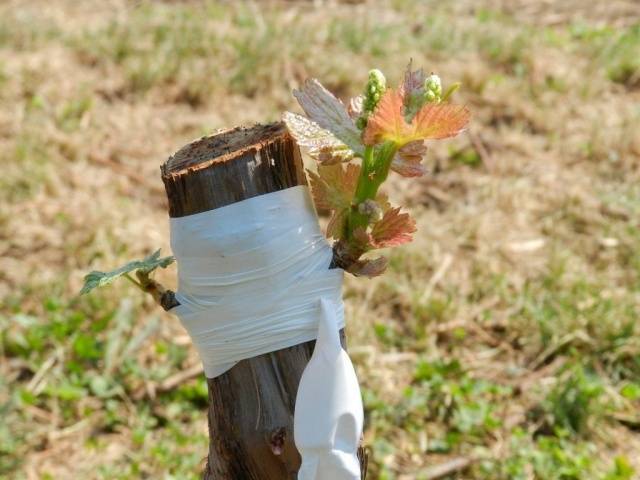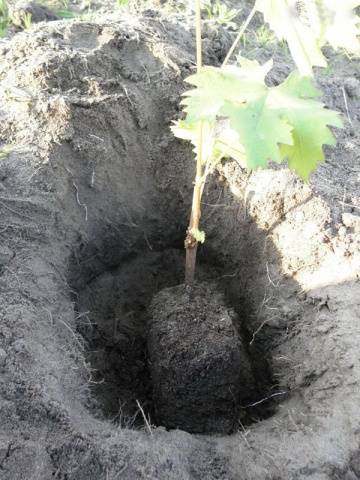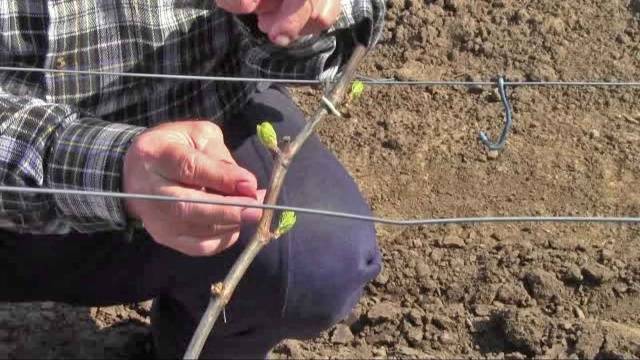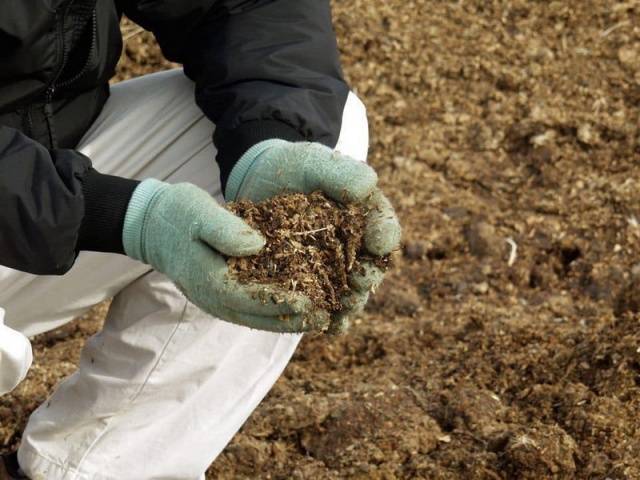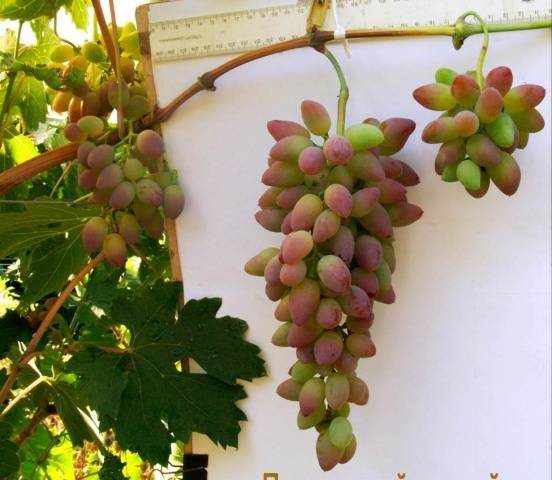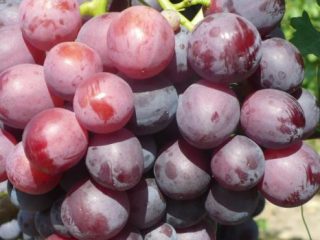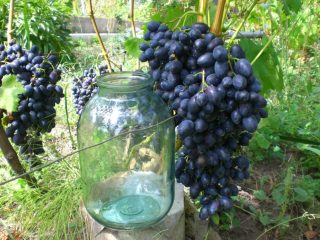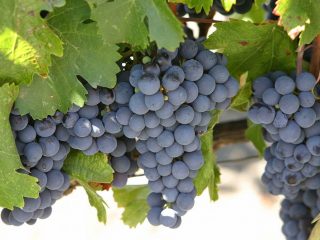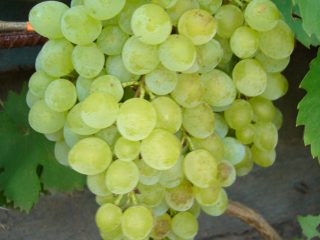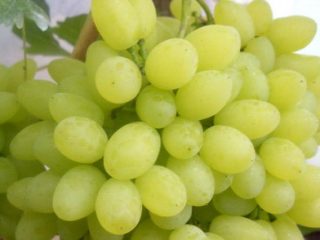Content
The modern winegrower has a place to roam: selection today includes several hundred varieties of one of the most ancient cultures. Grapes are early and late, table, dessert or technical, unpretentious and capricious, large-fruited and small. As a rule, summer residents prefer the most undemanding and early ripening varieties that give large and tasty berries. One of these grape varieties is Timur - the fruit of domestic selection. The characteristics of this grape are ambiguous: the variety has many advantages, but there are also significant disadvantages, so it is worth considering Timur in detail.
Description of the Timur grape variety, photos and reviews about it are collected in this article. Here we will talk about the benefits of grapes and how to deal with their disadvantages. Novice growers will find detailed instructions for growing the Timur variety.
Description
We got grapes by crossing Frumoas Albe and Vostrog. Both "parents" have early maturation and increased resistance to external factors. Timur fully adopted these positive qualities: grapes are unpretentious, they can be grown in almost any region of the country.
But even this was not the reason for the popularity of the Timur variety, the grapes were loved for very beautiful and large clusters, as well as for the excellent taste of its berries. The purpose of the fruits is table.
Description of the grape variety Timur:
- the variety has an early ripening period - the berries become ripe in 105-110 days (the harvest can be harvested at the end of July);
- the plant is medium-sized, the bushes are compact, not very tall, but they need a lot of space for normal development;
- the vine is brown, the leaves are large, three-lobed, carved;
- grapes develop very quickly, so they can be grown for decorative purposes: to decorate gazebos, arches, hedges;
- the fertility of the Timur variety is high - about 75% of all shoots on the bushes are fruitful;
- on each shoot 2-3 clusters can fully ripen;
- bunches of grapes are very large, densely packed, their average weight is 600 grams;
- the shape of Timur's bunches is cylindrical-conical;
- the berries are elongated, oval, colored in an amber-green hue;
- the grapes are quite large - about 6-7 grams;
- the peel on the fruits is thin, it does not interfere with enjoying the taste of the grapes;
- grape variety Timur has a very recognizable taste - sweet, with a well-defined nutmeg aroma;
- the yield of grapes is high, but only with sufficient care and proper planting;
- the Timur variety enters the fruiting phase already in the third year after planting the seedling;
- the survival rate of seedlings is high, the rooting rate of cuttings is also high, there are several ways to reproduce Timur;
- the flowers of this grape are bisexual, therefore they do not need pollinators and turn into large berries of approximately the same size (there are no small "peas" on the bunches);
- the sugar content in fruits is high - up to 25%, and there is very little acid in grapes;
- the variety is resistant to mildew and gray rot, but can be affected by grape mites;
- Timur's high frost resistance is noted - this grape can withstand up to -25 degrees without shelter;
- the variety is distinguished by good marketability - large beautiful bunches look great on display windows and counters;
- the purpose of the fruits is table or dessert - it is better to feast on Timur fresh, although excellent raisins of the highest grade are obtained from him
The grower who planted Timur should know that without proper and sufficient care, these grapes practically do not develop. Even bushes planted for decorative purposes need to be processed, pruned, watered and covered for the winter. And for a good harvest of delicious berries, you will have to work even more.
Advantages and disadvantages
White table grapes have the most important plus - tasty and large fruits. For this, Timur can be forgiven for all the shortcomings and try to level them out, armed with knowledge about the characteristics of the variety.
The strong qualities of Timur grapes are:
- early terms of its ripening - after 110 days you can get the first portion of the crop;
- very tasty berries with a thin and delicate skin;
- resistance to several diseases dangerous for grapes;
- fairly high frost resistance;
- the possibility of growing almost throughout the country (if there is a suitable soil);
- the suitability of the crop for transportation and storage;
- high productivity with small bush dimensions.
Unfortunately, Timur grapes also have disadvantages. The main ones are:
- the modest size of the bushes, which makes the growers go for a trick - to graft cuttings to old vigorous roots;
- whimsical variety to the composition of the soil: on moist and dense soils, Timur gives sour berries with a tart peel;
- even with high frost resistance, it is recommended to cover the grapes for the winter, since its wood does not tolerate low temperatures poorly.
As seen, the disadvantages are not critical, it is quite possible to fight with them, using the correct agricultural technology and providing the grapes with care.
Variety
An ordinary white Timur has one "younger brother" - the grape Timur Pink. Ukrainian breeders obtained this species by crossing the same Timur and Rapture of the Kuban. The result is a fairly high-quality variety, which is also often grown in the vastness of Russia (although not as often as the white subspecies).
The main difference between the two Timurs lies in the color of their fruits: pink grapes, respectively, give fruits of a rich pink-purple color. This variety has several more distinctive nuances:
- clusters of Pink Timur are even larger than usual - their average weight is 800 grams;
- berries are long, can have a nipple shape, very large;
- the taste of the fruit is sweeter, therefore, the calorie content of the berries is high;
- the peel is denser than that of white Timur, but it is easy to chew and is not considered a disadvantage;
- ripening periods are 12-15 days later - the harvest can be harvested by about the 130th day, that is, in mid-August;
- clusters are loose, conical (shown in the photo);
- the variety is not immune to the grape mite.
It is because of the weak immunity that Pink Timur did not receive such distribution as White. Gardeners also note the low yield of the species: very few bunches are tied on a few short shoots. Although reviews of experienced winegrowers indicate the possibility of increasing fertility with a rootstock on old roots (grapes take root well on the roots of any varieties).
Agrotechnics
It is not difficult to grow Timur: the grapes take root well, they grow quickly, and after a couple of years they begin to bear fruit.But in order for the bunches and berries to be large, the fruits contain a lot of sugar and have a pleasant taste, the winegrower will have to work hard, since the Timur variety is quite picky about the composition of the soil, pruning and rationing, it needs the prevention of some diseases and pests.
Planting grapes
You can get Timur grapes on your own plot in several ways:
- with the help of grafted seedlings;
- grafting Timur cuttings to the roots of other varieties;
- growing a bush from branches;
- sowing and germination of grape seeds.
The best results are obtained by those who graft cuttings to the roots of other, taller and less whimsical varieties. Thanks to this method, you can get rid of the main disadvantages of Timur: exactingness to the soil and the diminutiveness of the bush. There will be more fruit shoots, they will be more powerful - the grape harvest will increase significantly.
It is customary to plant green cuttings and seedlings in the spring to protect them from winter frosts and autumn cold. It is better to plant grapes with roots, just in the fall, because at this time there is more moisture and nutrients in the soil - the bushes take root better and grow faster.
It is necessary to plant grapes in early spring, until the juice has moved. But the roots of the plant are planted later, when the air temperature stabilizes. The optimal timing for planting grape seedlings: from mid-April to mid-July or from the second half of September to the end of October (depending on the climate in the region).
For Timur grapes, you need to find a place where:
- there will be no shadow, but there will be protection from the wind;
- on the south side of the house or fence;
- there will be an interval of 3-4 meters between other buildings, vigorous plants and Timur;
- the soil will be loose, nutritious, and will be able to pass moisture well.
Important rules of care
Probably Timur grapes need even more careful care than most other varieties. For normal development and active fruiting, these grapes need the following:
- Mandatory watering in the periods before the flowering of the vine and in the phase of berry formation. If the summer in the region turned out to be dry, you need to irrigate even more often. Lack of moisture leads to a decrease in yield and shrinking of the berries.
- It is advisable to mulch the earth around the trunk. For this, sawdust or moss is usually used.
-
It is necessary to cut Timur twice a year, leaving about 10-12 eyes on each shoot. It is also very important to normalize the bunches: the usual load on the bush is 25-30 eyes. Experienced growers recommend not to leave more than 20 fruit buds on Timur's bushes - this way the clusters will be much larger.
- Regardless of the size of the bush and its age, the Timur variety must be covered for the winter. The best way is to bend the vine to the ground, when the stem is tied and laid on sawdust or spruce branches, and then sprinkled with soil or snow.
-
You need to feed the grapes regularly (at least twice a year). For this, both mineral and organic fertilizers are suitable, but it is advisable not to overdo it with nitrogen.
- Every year the bushes are treated with prophylactic agents. This is done before flowering vines and immediately after flowering.
These recommendations should not be neglected, because the Timur variety is very sensitive to the lack of attention from the grower: already limited harvests risk becoming scarce or disappearing altogether.
Feedback
Conclusion
Timur is an excellent grape for those who want to enjoy a delicious dessert variety. Large clusters and large berries have an attractive presentation, so they sell well. Anyone who has decided to grow Timur grapes on his site must be ready for the "whims" of this variety, because he needs nutritious soil, a lot of moisture, pruning for fruiting, shelter for the winter.
More details about this grape and about its cultivation are described in the video:
